The Ultra-Hydrating Skincare Ingredient Everyone's Talking About Right Now
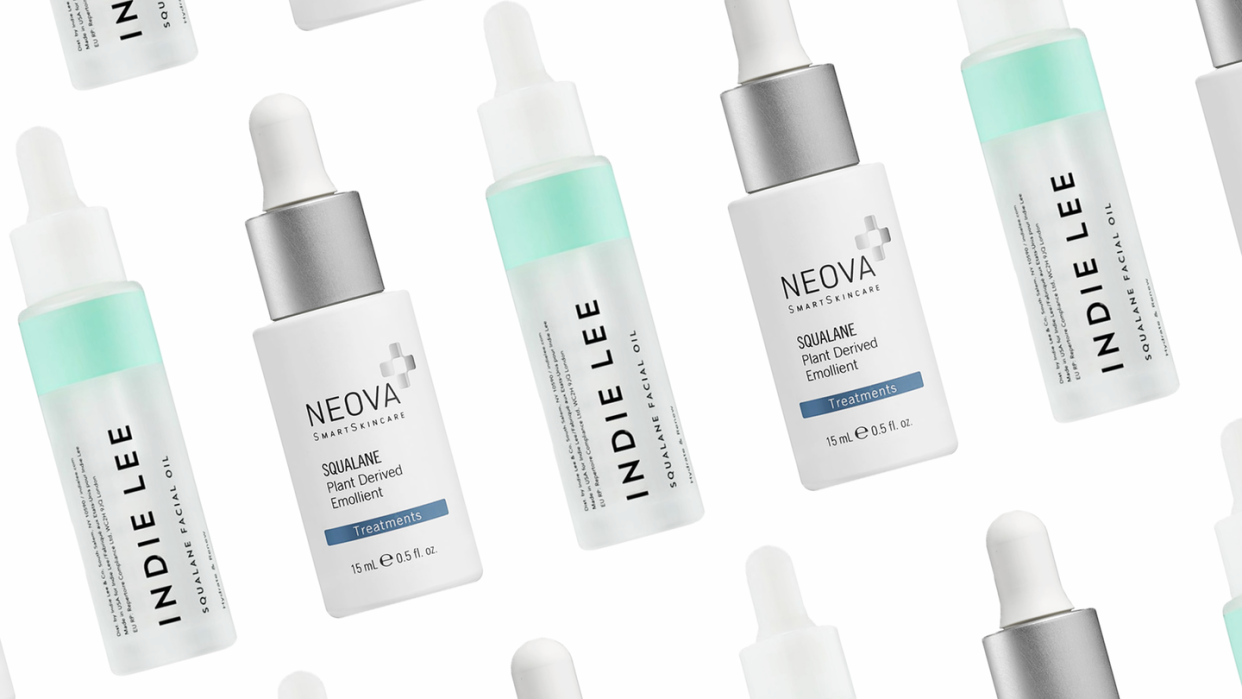
"Hearst Magazines and Yahoo may earn commission or revenue on some items through these links."
[table-of-contents] stripped
It's the skincare ingredient that feels like it's popping up everywhere lately: It’s in your favorite overnight mask, your go-to facial cleanser and maybe even your most used hair products. But what exactly is squalene?
If that is the question that has brought you here, we’re glad to have your attention. Squalene is an oily liquid with ultra-hydrating properties that make it a winner when it comes to locking moisture into your skin. Even Jennifer Aniston uses it as part of her skincare routine in the form of Tatcha's serum stick, made with 80% squalane.
We spoke with chemists and dermatologists to answer all of your burning questions about the popular skincare ingredient and its benefits for skin and hair.
Squalene vs. squalane
If you're looking for skincare and haircare products with squalene, you may come across the term squalane (with an "a"), which can seem a bit confusing. But both ingredients are organic compounds “found naturally in human sebum, which is the oil that is secreted through our pores,” according to Chiara Butler, a reviews analyst in the Good Housekeeping Institute Beauty, Health & Sustainability Lab.
But how is squalene different from squalane and why are we bottling it up? "Squalene is a lipid, also known as a fat, that is naturally produced by the oil glands in our skin to hydrate and maintain the barrier of our skin," explains Charlotte Birnbaum, M.D., a board-certified dermatologist at Spring Street Dermatology in New York City.
Like many other natural compounds with beauty benefits, our body's production of squalene declines with age. Scientists have found a way to obtain squalene from plant and animal sources, but since the fatty molecule is unstable in its natural state, it needs to be hydrogenated (i.e., combined with hydrogen) into squalane to create a shelf-stable product. “For that reason, squalane is much more commonly used as a cosmetic ingredient than squalene, and it is used at much higher concentrations," Butler notes. "A few brands even offer 100% pure squalane as a skincare product."
Where does squalene come from?
Traditionally, squalene is sourced from the livers of sharks, where it can be naturally found in high concentrations. (In fact, this is where squalene gets its name from, as Squalus is a genus of sharks.) However, because of ethical concerns, many major beauty companies have thankfully shifted away from shark-derived squalene and instead have turned to other sources, since the natural organic compound can also be derived from many plants. Squalene is also abundant in olive oil, and can be sourced from rice bran, wheat germ and sugar cane.
Benefits of squalane oil for skin and hair
It has excellent emollient properties. Squalane oil can keep your skin and hair hydrated and moisturized. "Squalane is a great moisturizer as it is easily absorbed and prevents water loss from the skin," says Dr. Birnbaum.
It can increase luminosity and vibrancy of skin. According to Loretta Ciraldo, M.D., F.A.A.D., a board-certified dermatologist and co-founder of Dr. Loretta Skincare, squalane oil actually helps to repair the barrier of your skin. "So when you put it on, you're not only preventing water loss, you're also helping to protect the skin from harsh stuff in the environment," she says. This can also lessen appearance of fine lines and wrinkles, and even help reduce redness.
It has natural antioxidant properties. In addition to these hydrating and anti-aging benefits, squalene's properties have been found to fight free radical damage in skin, Dr. Birnbaum notes.
It can restore suppleness to dry skin. Squalane is easily absorbed by our skin because it "is a component of our skin’s natural lipid mixture," Butler says. "Squalane acts as an emollient and an occlusive, so it softens skin and prevents water from evaporating. It has a very light texture and doesn’t feel greasy on skin.
Squalane Facial Oil
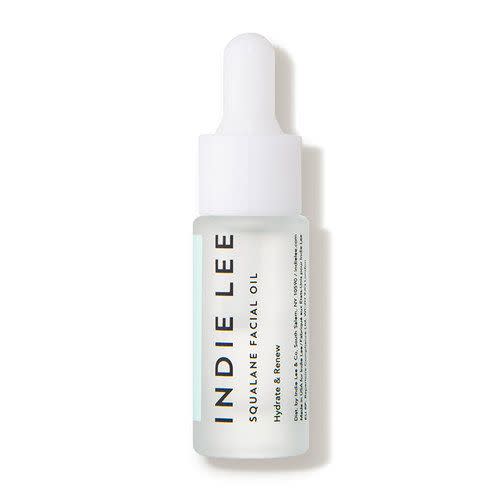
Squalane Facial Oil
dermstore.com
$14.00
Indie LeeSqualane + Vitamin C Rose Oil
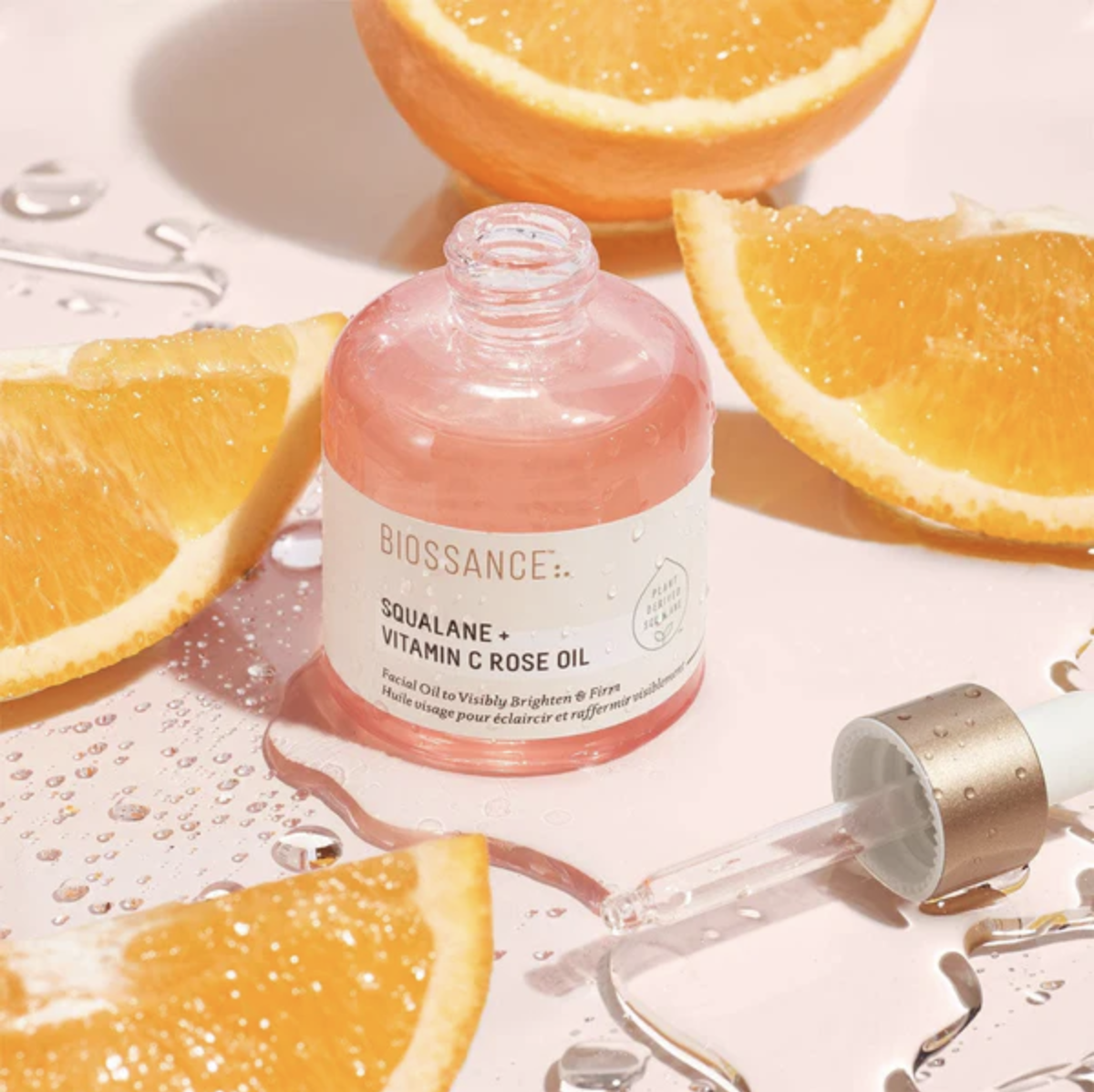
Squalane + Vitamin C Rose Oil
Biossance
$74.00
100% Plant-Derived Squalane
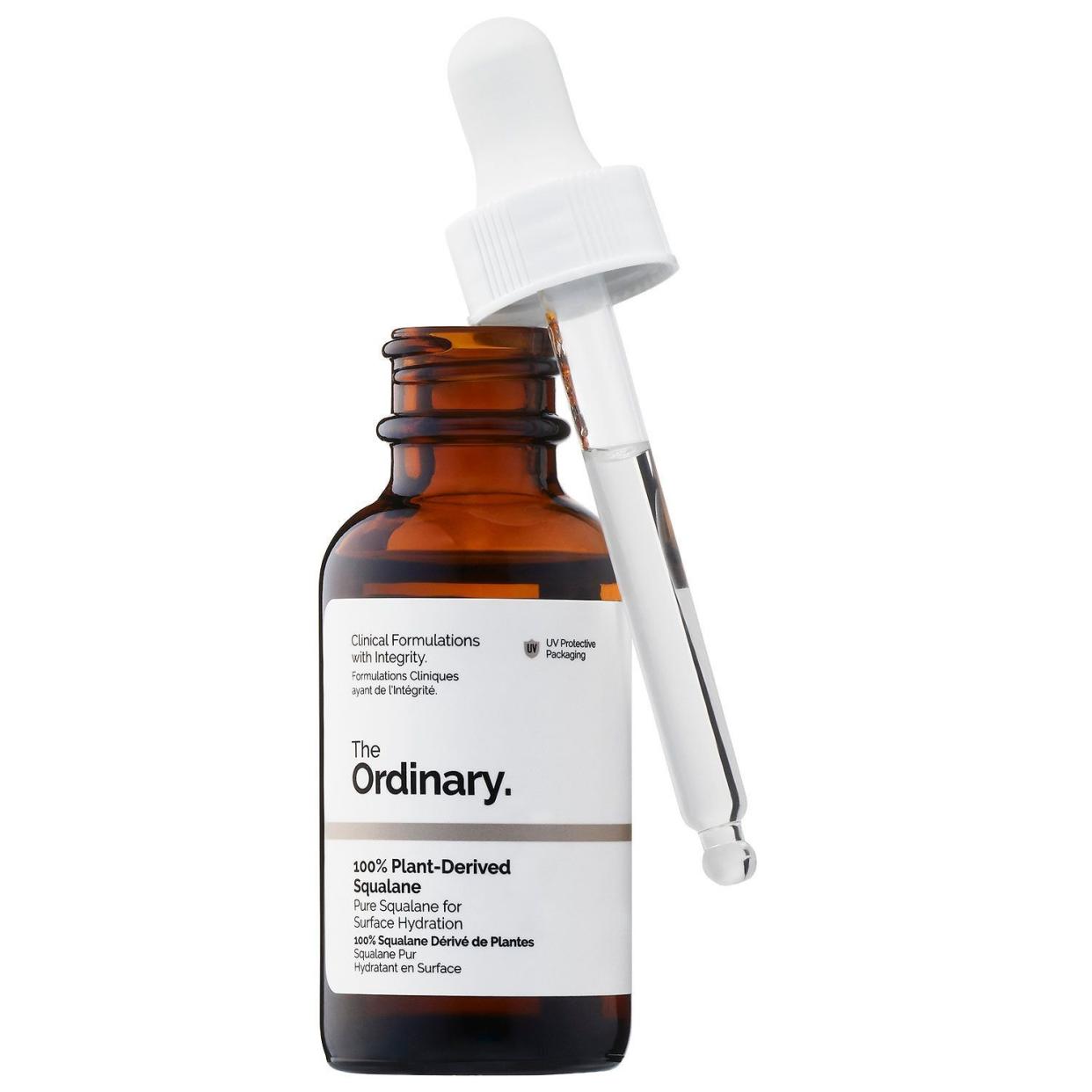
100% Plant-Derived Squalane
sephora.com
$10.00
Squalane Oil Moisturizer
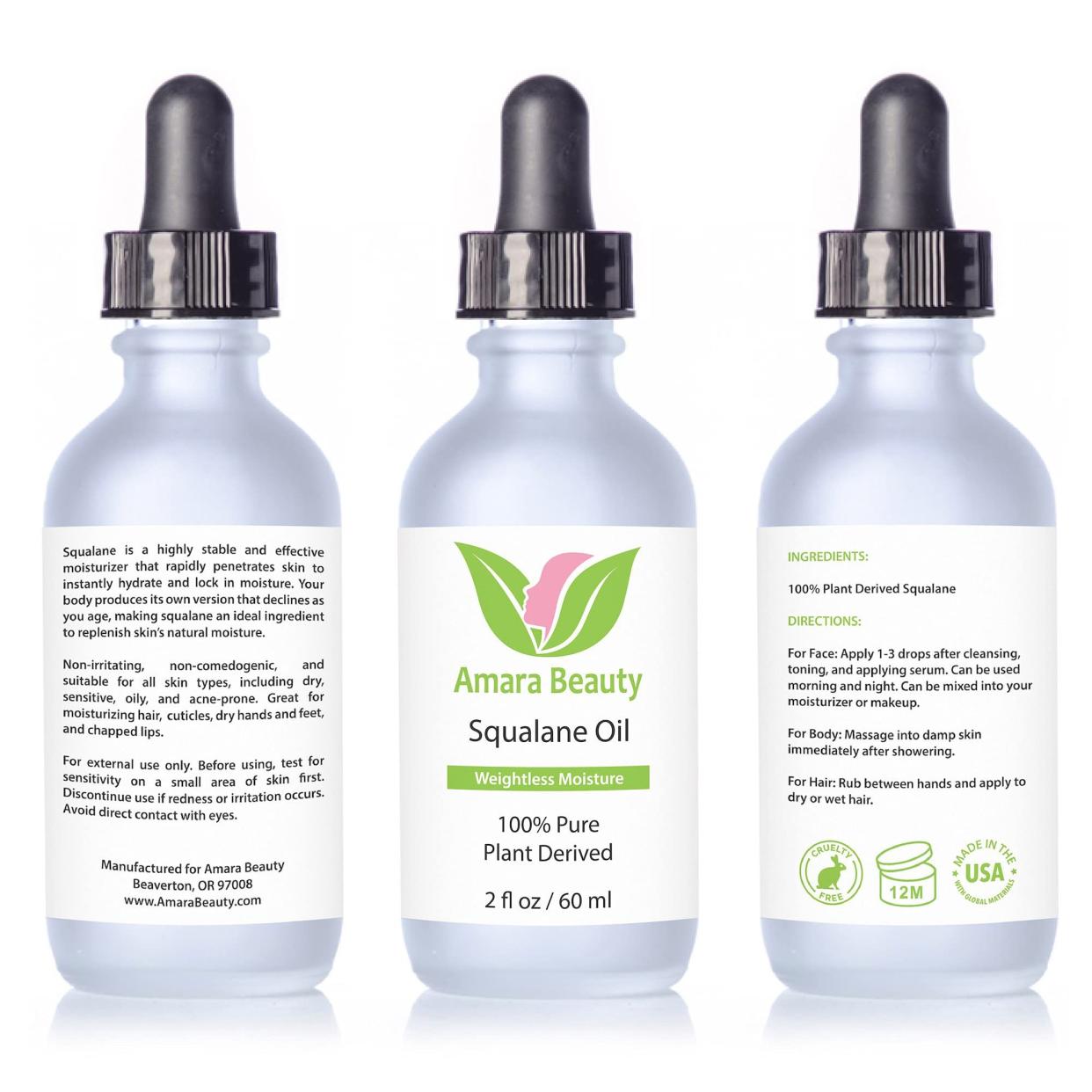
Squalane Oil Moisturizer
amazon.com
$19.95
FAQs
What type of skin is squalane oil best for?
Due to its powerful moisturizing and soothing abilities, the dermatologists we spoke with find squalane oil particularly useful for soothing dry skin and inflamed skin conditions such as eczema. But one of the great things about squalane oil is that it's safe and beneficial to all types of skin — even if you have sensitive skin or are prone to acne. "[Squalane] is not a common irritant or allergen, so even the most sensitive skin is unlikely to react to it," explains Dr. Birnbaum. "While most oils clog pores, squalane is one of the few that may be used even on acne-prone skin."
Similarly, Dr. Ciraldo recommends squalane oil for all skin types, even oily skin, noting that it's lightweight and non-greasy, so it's unlikely to clog pores or lead to breakouts. "Even if you have oily skin it's important to still try to nourish your skin with healthy oils," she says.
What's the best way to use squalane oil?
If you're interested in incorporating squalane oil into your daily skincare routine, it's always best to check in with your derm, but generally Dr. Ciraldo recommends the following steps twice a day, for both morning and night:
Cleanse skin and apply any serums first.
Massage in a few drops of squalane oil.
Finish off with moisturizer (in the morning, apply a moisturizer with SPF 3o-60, or apply your sunscreen after moisturizer).
You can also use squalane oil on your hair and nails to reap the same hydrating effects. "Because squalene is also a component of sebum on hair, applying squalane to hair can provide some of the emollience and water resistance to hair that our sebum provides," Butler says.
To leave your hair softer and shinier, apply several drops of squalane oil to your scalp. "Massage it into your scalp and then comb through so that you get it to your ends," advises Dr. Ciraldo. As for your fingernails, dabbing a few drops of squalane oil into your cuticles will ensure you get the hydrating benefits, especially if you have dry, damaged nails.
Is squalane better than hyaluronic acid?
While both squalane and hyaluronic acid are naturally produced in the human body, they function differently: Squalane works by locking in your natural oils, while HA works like a sponge drawing hydration from the air into your skin. Which is best for your skin depends on your skin type and needs — but you can also use both simultaneously for extra hydrating benefits.
You Might Also Like
